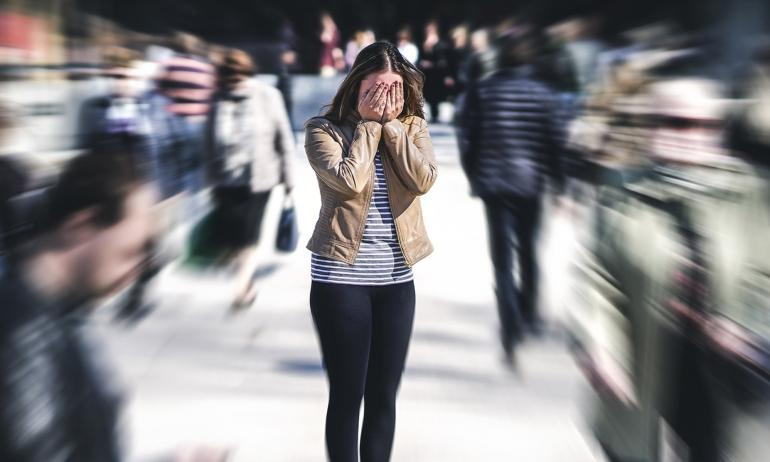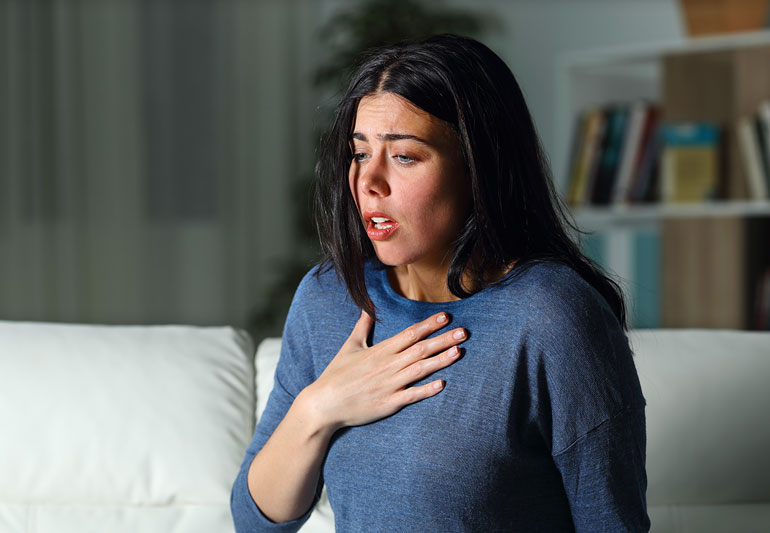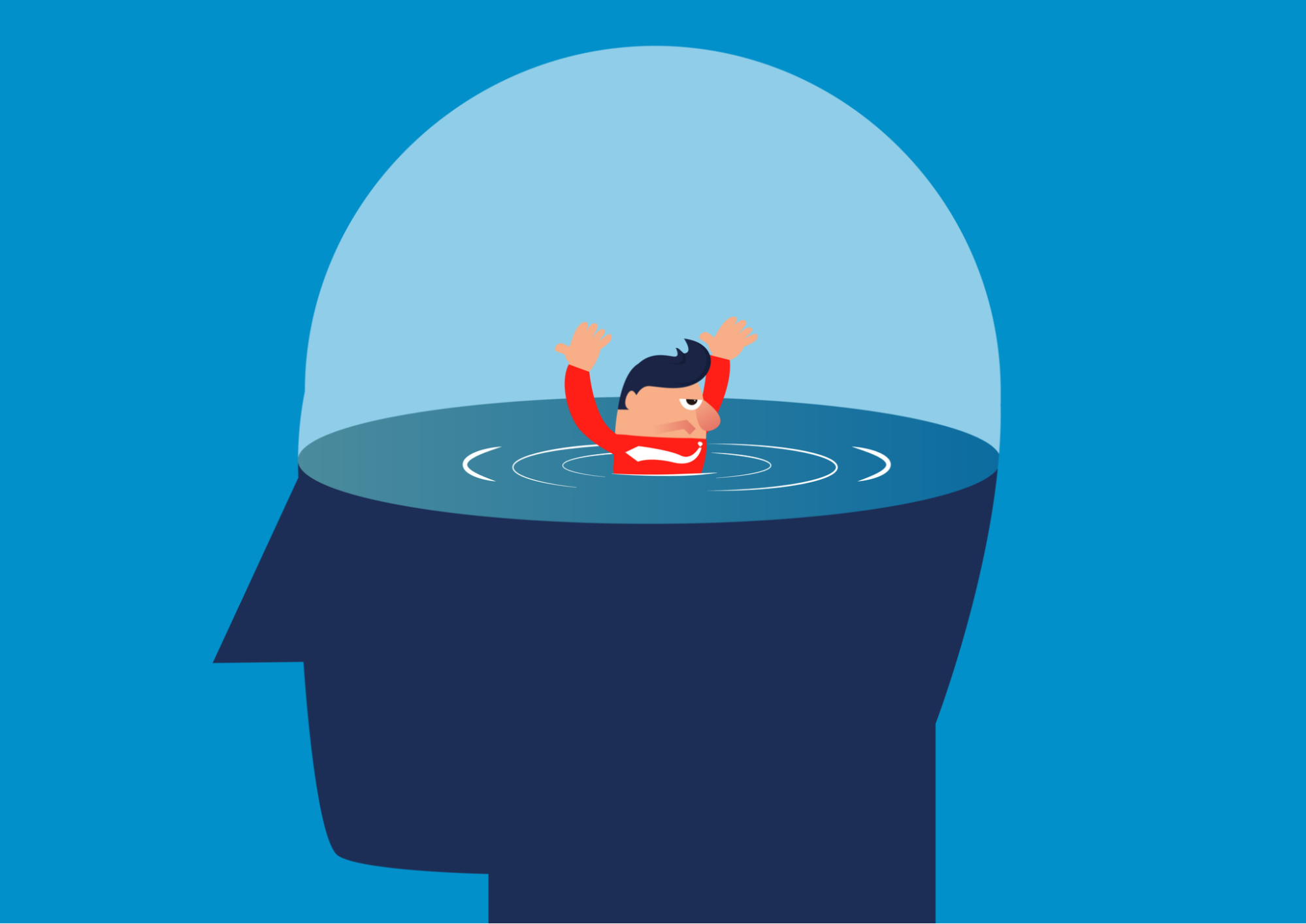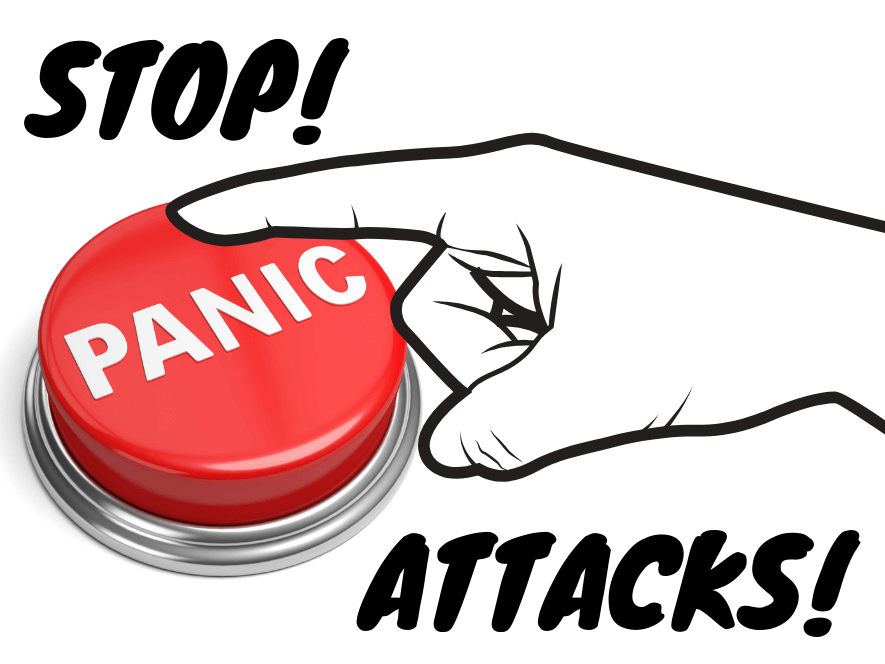Can a panic attack kill? How to deal with a sudden panic attack
And how to help people who are going through this and not hurt them. We asked a practicing clinical psychologist.
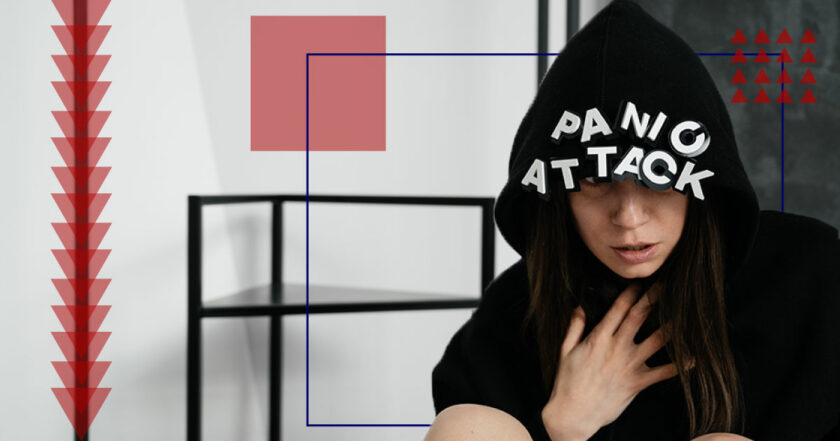
Panic attacks usually start suddenly, without warning. They can strike at any time: when you drive a car, in a mall, in a dentist's chair, during a business meeting, or even when you're sound asleep. It can happen once, or it can happen again and again, becoming an unpleasant and frightening part of your life. What to do if you have a panic attack, how to deal with it, and how dangerous is it? Rubryka delved into that.
Panic out of nowhere
A panic attack is a condition in which a person experiences strong and unreasonable fear. At the same time, such emotions are almost beyond control. Fear causes an entire chain of reactions in the body: heart rate increases, blood pressure rises, there's not enough air. The legs become "jelly," there's trembling and chills, the mouth dries out, and the ability to concentrate on something decreases sharply. This condition can last several minutes or several hours.
We're all probably familiar with panic attacks due to specific stressful situations, such as an interview, an exam, or some important event. It's our body's natural reaction to danger, "kick and rush." For example, if you suddenly see a grizzly bear, the body reacts instinctively: heart rate and respiration increase, adrenaline is released, the hair literally "stands on end" so the body prepares for a life-threatening situation. This mechanism helps us to flee at high speed (or dare to attack) and avoid danger to life. Similar reactions are observed in panic attacks. But why a panic attack occurs when there's no obvious danger remains a mystery to many.
"I'm suffocating"
Panic attacks occur periodically in about 5% of people, most affected by residents of megacities. Doctors attribute this to the rhythm of life in a big city and the constant stress experienced by city dwellers. According to statistics, young people, mostly women, are more prone to panic attacks. Panic attacks usually occur between the ages of 18 and 30, when people experience significant life changes, positive or negative, and in old age, there's a milder form of the disease, with mild symptoms, probably because of life experience, acquired over a long period of time, which makes a person more "thick-skinned" and self-confident.
However, recently this breakdown has changed significantly. Doctors say that complaints of panic attacks have become more frequent, because of people's high anxiety due to COVID-19 and its consequences. According to a survey of more than 1,000 Americans by All Points North Lodge, a personal development and health company, a third of respondents, regardless of gender or age, reported at least one case of a panic attack during a pandemic. And it's not surprising, because the world has suddenly ceased to be familiar and predictable.
People who've suffered a panic attack often describe it as follows: "the earth is coming out from under my feet," "my heart is about to jump out of my chest," "I'm suffocating," "I thought I was dying," etc. Sometimes during a panic attack, a state of derealization or depersonalization can occur. In the first case, the world seems changed, alienated, everything happens as if in a fog. With depersonalization, one's own body and mental processes seem to change. In this case, a person can not say exactly what the essence of change is and what is wrong with it, just feels a kind of "feeling of alienation."
How do you determine that what you're experiencing is a panic attack? Among its features are the following:
- Fear for life, which appears suddenly
- Accelerated heartbeat
- Difficulty breathing
- Excessive sweating
- Desire for stool
- Hot flushes or chills
- Tremor
- Dizziness
- Loss of control over the situation
- Fear of a heart attack
After some time and after several episodes of panic attacks, there's often anxiety waiting for the next attack and the development of new behavior scenarios, such as avoiding public places, being in crowds, large open spaces, traveling alone or in an elevator. This is because a person who's survived PA has a thought: I cannot be helped during the attack and I may lose control or even die.
If the heart seems to stop, can it really stop?
"A panic attack is a reaction of the body to a threat to human life or health. However, it's important to understand that what's created to protect us cannot kill us. No deaths have been recorded because of a panic attack," says clinical psychologist Natalia Repetska. This condition is treatable, but only a psychiatrist can prescribe medication for panic attacks or other anxiety disorders, but in most cases, they aren't needed at the initial stage of PA. Often in therapy, it's enough to inform the client about what's happening to him (the stage of psychoeducation) and it's enough for a person to learn not to be afraid of panic attacks and prevent its transformation into a panic disorder.
Who's most prone to panic attacks? Factors that may increase the risk of panic attacks or panic disorder include:
- Family history of panic attacks or panic disorder.
- Serious life stress, such as death or serious illness of a loved one.
- A traumatic event, like violence or a serious accident.
- Radical changes in life, such as divorce or the birth of a child.
- Smoking or excessive caffeine consumption.
- History of physical or sexual violence in childhood.
It seems that panic attacks occur only in people who've experienced terrible, traumatic events. But it's not the case. The expert notes: a panic attack can occur in a perfectly healthy person because everyone has a built-in mechanism for our protection. In addition, modern realities immerse us in a state of constant stress, which can also lead to PA. Panic disorder also develops in anxious people who are prone to catastrophization, the habit of worrying about themselves, and a sense of distrust of the world.
In children, as in adults, panic attacks can occur amid a stressful event, exams, difficulties in the family or at school, difficulties with socialization. Anxious and insecure children are more prone to panic attacks.
But that's not all. Often, panic attacks are a way for the body to physically signal that a person's stress levels are too high and that people often live in a more stressful state than they even imagine. In other words, PA is your body's way of telling you that it's time to finally take care of yourself.
A separate fear that arises during panic attacks is the fear of losing consciousness. The symptoms are somewhat similar, and people fear that they may lose consciousness on the street or in the metro. But in reality, the probability of losing consciousness during a panic attack is close to zero, because its physiology is opposite to the state of fainting.
In a PA, an organism is mobilized with the same ancient instinct "kick or rush," accompanying strong fright. Although there's no real danger, the person feels as if they have met a wild animal and must urgently escape. When you lose consciousness, the opposite is true. Those with whom this has happened know well that before losing consciousness the tone is so low (the pressure drops) that there's no strength for anything, not even to be afraid. The person with the PA must understand that they will not lose consciousness, will not go mad and heart will not stop.
By the way, in everyday life, a panic attack is often confused with a heart attack, but the comparison with a heart attack is also extremely incorrect. A person in an acute state with myocardial infarction is usually sedentary, lying or sitting, leaning on a chair or bed. During PA, on the contrary, there is excitement, the person doesn't find a place, running around the room, and insists on calling an ambulance. Relatives or witnesses of this condition, of course, call an ambulance, but as a rule, neither the ECG nor the examination of the specialist reveals any abnormalities of the cardiovascular system.
Natalia Repetska emphasizes that if a person has experienced a panic attack for the first time and is not sure that it really was, you should consult a family doctor to be examined and make sure that it is not a symptom of somatic disease.
I have a panic attack. What shall I do?
We should repeat: no panic attack led to the death of a person. However, knowing this doesn't always help to cope with this condition. There are methods of self-help during panic attacks. They are most effective at the very beginning of the episode.
1. The first thing to do during a panic attack is to stabilize your breathing by focusing on it. This will help lower your emotional level and you will be able to rationally comprehend what is happening.
While sitting or standing, try to relax the muscles of the body as much as possible and focus on breathing:
- counting from 1-2-3-4, take a slow deep breath, with the abdomen protruding forward;
- for the next four counts, hold your breath;
- then smooth exhalation counting from 1-2-3-4;
- again a delay of four counts before the next breath.
This method of "box breathing" is practiced by American special forces, navy seals, to quickly pull themselves together in a stressful situation or before a fight. After 3-5 minutes of such breathing, you will notice that your condition has become noticeably calmer.
2. The next technique that helps a person calm down is to breathe in a paper bag.
During a panic attack, our body is oversaturated with oxygen, and breathing in a bag can help reduce the concentration of oxygen and calm the panic.
3. The grounding technique is also suitable to refocus from the frightening symptoms to what surrounds us.
Sit comfortably so that your back touches the back of the chair and your feet rest firmly on the floor. Describe everything you see around you: objects, colors, smells that you feel, etc. Name (you can do it mentally):
- five things you see;
- four that you can touch;
- three that you can hear;
- two that you can taste;
- and then name one good quality that you like in yourself.
4. As you perform these exercises, constantly remind yourself that it's just a temporary panic, except for this unpleasant moment, you're fine, and everything you feel will pass. When a panic attack occurs, it may seem that it will last forever, but it will not happen, and in the end, you will be fine, so it is important to remind yourself of this.
5. After calming down, analyze whether there was a real objective threat; if not, ask yourself: what thoughts did I frighten myself with, because it is our thoughts that cause anxiety, which includes our internal alarm, and then a vicious circle, first I frighten myself with anxious thoughts, and then I am afraid of manifestations of the autonomic nervous system.
What to do if you witness a panic attack?
If you're not sure if this is a panic attack, call an ambulance. If you know that it's exactly the attack, then:
- don't leave a person alone;
- speak in simple, short sentences;
- don't make assumptions about human needs, better ask;
- breathe with the person.
Most people experience one or two panic attacks in their lifetime, and the problem goes away when the stressful period ends. But if PAs recur and cause long periods of constant fear of another attack, a disease called panic disorder can occur. In general, the psychologist emphasizes that one needs a comprehensive approach to cope with repeated panic attacks. The most effective is cognitive-behavioral therapy, which helps a person understand how thoughts and their misinterpretation lead to emotional aggravation and behavior change. This type of therapy should be used alone or in combination with pharmacotherapy, which should be prescribed only by a psychiatrist.
Panic attacks don't affect the number of years lived but affect the quality of life. It's important not to self-medicate and seek professional help.


